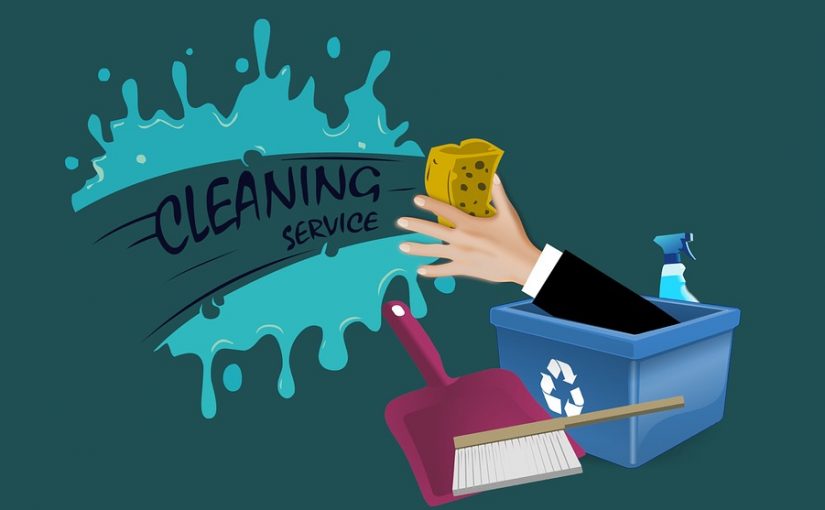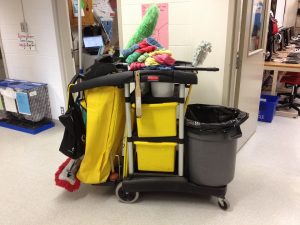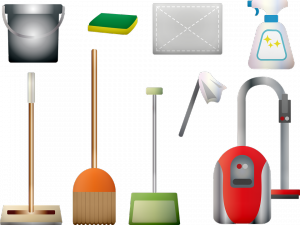Janitorial Services Companies are placed in NCCI Class Code 9014 for Workers Comp
Janitorial Services Companies can be placed within a number of different NCCI Class Codes for purposes of Workers Compensation Insurance. NCCI stands for the National Council on Compensation Insurance. This organization is the foremost authority for state workers compensation systems when it comes to determining classification codes and recommending pure premium rates. NCCI gathers data, analyzes industry trends, provides objective insurance rate and loss cost recommendations. For most states there are around 700 different classification codes business are placed within.
Janitorial Services Companies are primarily placed within NCCI Class Code 9014. The duties of businesses that operate in this industry include keeping businesses clean by dusting, mopping, vacuuming, waxing, and even polishing floors. Some businesses have employees who empty trash, clean interior walls, as well as cleaning, sanitizing, and deodorizing restrooms. There are many aspects of this business that make it either a favorable or unfavorable business for an insurance carrier.

The easiest type of Janitorial Services company for an insurance carrier to offer workers compensation coverage to is an office cleaning company. This is because these businesses have less risky operations than businesses who clean exterior or industrial settings. Because of the lower risk for office cleaning companies, this classification code is the easiest to get insured and usually at the best rates. For this reason, most businesses attempt to operate in this part of the industry exclusively. For businesses that operate in other parts of this industry (carpet cleaning, floor waxing, power washing, window washing, etc.), there are many things those businesses need to consider in relation to workers compensation coverage. All businesses in the janitorial services industry can benefit from an increased focus on operating a safe business. Here are four things all businesses can do to show an underwriter they are focused on limiting insurance claims.

Types of Activities Underwriters Like about a Janitorial Services Company
Some Janitorial Services Companies operate in more risky portions of the industry. Those companies must prepare for a higher rate for all forms of commercial insurance and those companies must better prepare for keeping their employees safe. No matter the duties of the employees in this industry, it is important for the leadership of a business to implement activities underwriters like about a Janitorial Services Companies. Here are four activities that help a business get coverage and limit what the business pays for premium.
Safety Program
A Safety Program is the primary aspect a business can use to improve the results of the business. An effective safety program can limit workplace injuries, raise the morale of the staff, lower the frequency and severity of insurance claims, and increase the productivity of the business. A safety program can do this by creating a workplace culture that has employees thinking about the health and well-being of everyone involved in the business. If this is implemented effectively, it will lower the frequency and the severity of all insurance claims the business files. When the business files less workers comp claims it is because the business is experiencing less injured employees. Less injured employees means the business has created an environment that includes healthy employees. Healthy employees tend to contribute to a higher overall morale throughout the workforce. Conversely, when employees are healthy and happy, they are more likely to be more productive.
Return-to-Work Program
A Return-to-Work Program is a natural extension of a businesses safety program. It is a program most business hope they never have to use, or a program a business at least rarely uses. The best way to prepare for this is to establish a safety committee with employees from all levels of the organization. If you have an employee who has dealt with a workplace injury and the workers compensation system, it may be a wise decision to place that employee on this committee. Creating light duty activities for employees will help get them back to work quicker and give them less time to develop routines outside of their work environment. The sooner an injured employee gets back to work in any capacity, the more likely they are to eventually return to full-time permanent work.
Well-Maintained Equipment
Equipment ages and wears out over time. There is no way to avoid wear and tear on the equipment of a janitorial services company. With careful attention, maintaining equipment can get more useful life and productivity out of most equipment. For the business, this means there is less downtime and increase job site productivity. It also means less injured workers because of faulty equipment. Proper maintenance will also result in a higher resale value when the time comes to sell it.
Maintaining equipment begins with picking the right equipment in the first place and operating the used equipment in a smart, safe and efficient manner. If you require your employees to document this maintenance, it can create an atmosphere where maintenance and safety are part of the job. In addition to safety and longevity, preventative maintenance can also reduce the likelihood of theft.
Businesses that Work with OSHA
Many businesses attempt to spend as little time as possible interacting with a government agency. In some instances, this is a wise decision because interacting with a government agency can bring the eyes of regulators at many levels of the government. OSHA is one agency where this is not the case. OSHA offers many services to help a business remain safe. They will even come out to a facility upon request and give recommendation about the safety of operations. There are many ways OSHA can help a business remain safe. If a business does use any of the recommendations of OSHA, it should be documented and used when acquiring all forms of commercial insurance.

The Types of Activities Underwriters do not like Businesses to Partake?
Working at Heights
Anything that is done at heights (especially if it is done above ten feet in height), makes an insurance carrier less likely to want to offer coverage to that business. Window Washing is the primary reason an employee works at heights. Working at height causes workers compensation claims to be much more severe. When a business experiences a severe claim it sticks with their experience modification rating for a three year period. This can cause premium to be elevated for a three year period and can make it more difficult for some businesses to even get coverage offered on the open market.
Industrial Settings
Janitorial Services Companies that operate in an Industrial Setting tend to have more severe claims compared to businesses that operate primarily indoors. Especially when indoor companies operate primarily in an office setting. In many instances, businesses who operate in an industrial setting have to purchase coverage from the state’s assigned risk provider. This is because they are so risky many carriers are not willing to offer coverage to the business at all. The assigned risk provider almost exclusively offers more expensive rates compared to the open market.
Maintenance and Repair Work
NCCI Class Code 9014 allows for some maintenance and minor repair work. Most insurance carriers allow up to 10% of business be related to maintenance and repair work. Maintenance and repair work significantly raises the frequency of claims, which negatively impacts a businesses loss cost. The loss cost is the primary number an underwriter uses to determine what a business must pay for coverage.
Residential Cleaning
Residential cleaning companies operate in a less controlled environment. Most employees are driving to a third party location and are unsupervised. The fact that there is a driving risks raises both the frequency and especially the severity of insurance claims filed by these companies. Because of this elevated risk, insurance carriers are less likely to offer coverage to businesses. If those businesses are not able to find coverage on the open market, they are forced to buy coverage from the state provider. NCCI Class Code 9014 allows for residential cleaning if it is less than 50% of operations.

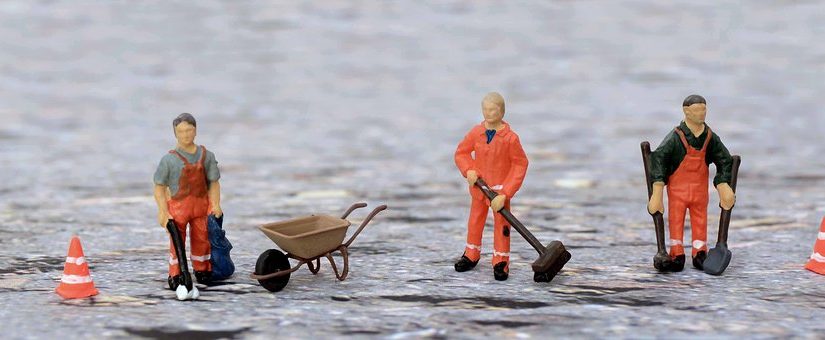



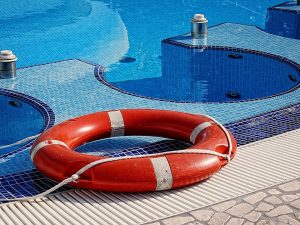

 Commercial Property
Commercial Property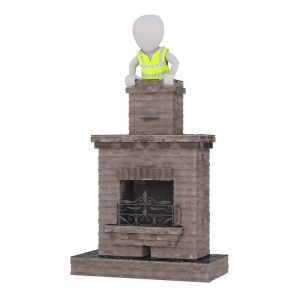 Umbrella
Umbrella



